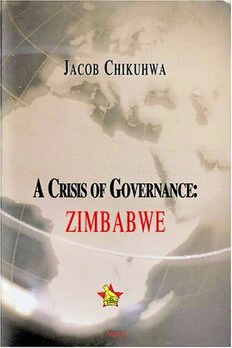
A Crisis of Governance: Zimbabwe (2004) PDF
366 Pages·2004·3.371 MB·English
Most books are stored in the elastic cloud where traffic is expensive. For this reason, we have a limit on daily download.
Preview A Crisis of Governance: Zimbabwe (2004)
Description:
This is a detailed analysis of Zimbabwe's struggle to become a viable independent state, with a focus on the tumultuous events under President Robert Mugabe.Written by an internationally-trained African economic analyst, A Crisis of Governance is a detailed study of Zimbabwean socio-economic history and development since the nation achieved independence from Great Britain in April 1980, with a focus on recent events under President Robert Mugabe and the ZANU (Patriotic Front).Problems range from the need for constitutional reform to political patronage and a de facto one-party democracy and the need for transparency in land reform, privatization, and economic liberalization.It is one thing to break free of colonial tutelage; it is quite another to recover from the legacy of colonialism and implement the macroeconomic changes that would lay the basis for a self-sustaining economy. The crisis of governance in Zimbabwe (formerly known as Rhodesia) began with the occupation of Mashonaland by the British South Africa Company (BSAC) in 1890. Self-rule and the subsequent British-sponsored constitutions did not much improve the situation, and the 1965 Unilateral Declaration of Independence only aggravated it.Jacob Chikuhwa provides many specific examples of the steps forward and the steps back, documented by personal interviews, news sources and others,Bibliography, Index, Footnotes.
See more
The list of books you might like
Most books are stored in the elastic cloud where traffic is expensive. For this reason, we have a limit on daily download.
